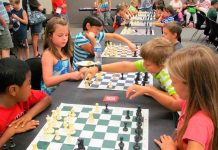Муниципальное бюджетное общеобразовательное учреждение
«Средняя общеобразовательная школа № 6»
г. Морозовск Ростовская область
План — конспект урока по английскому языку
для ИД в 5 классе
«Discovering Places of Interest in London»
подготовила
учитель английского языка
Андросюк Юлия Александровна
г. Морозовск
2014
Аннотация к уроку
Урок « Discovering Places of Interest in London « подготовлен для учащихся 5-х классов общеобразовательных школ, изучающих английский язык по программе М. З. Биболетовой “Enjoy English”. Данный урок является вводным по теме: “Learning More About London” (IV четверть.) Занятие построено в форме путешествия по Лондону,в ходе которого дети знакомятся с его достопримечательностями. На уроке были использованы приёмы здоровьесберегающей технологии (физкультминутка),ИКТ,методы самоконтроля, рефлексия, обучение в сотрудничестве, элементы технологии критического мышления. Школьники участвовали во всех видах деятельности: аудирование, письмо, диалогические и монологические высказывания, чтение и работа с текстом.
Цель урока: формирование благоприятных условий в рамках темы для развития самостоятельно мыслящей личности.
Задачи урока:
1) активизировать лексику по теме;
2) обучать монологическому и диалогическому высказыванию;
3) поддерживать дух толерантности, принимая во внимание другие точки зрения;
4) развивать критическое мышление
Оборудование и раздаточный материал:
Компьютер, проектор, интерактивная доска, презентация Smart Notebook, путевые листы,
рефлексивные карточки, карточки самооценки, таблицы с названиями достопримечательностей, образцы с монологическим и диалогическим высказыванием.
ХОД УРОКА
Стадия вызова
-
Организационный момент. Приветствие.
T: —Hello, boys and girls! I am glad to see you.
-
Беседа с учащимися.
T: —How are you?
P:- I am fine, thank you.
T:— OK, lets mark your mood at the beginning of the lesson. (дети в путевом листе отмечают настроение в п.1) and your expectations( п.2)
-
Активизация языкового материала.
T: —I invite you to visit a very beautiful city. Watch the video and guess: what city is it?(просмотр видеоролика)
-Is it Moscow? Is it New York?
-It is London.
-My dear friends you are so clever! It is really London. Children, have you ever been to London? Would you like to visit it and why?
P: -I have never been to London. I want to visit it because I want to see …(учащиеся называют, чтобы они хотели увидеть там)
T: —Today we’ll have the opportunity to visit London.
-
Фонетическая зарядка.
T: —Well, first of all let’ s remember some important words about London. Repeat after me: tourists, Westminster Abbey, tower , Thames, White Tower, Bloody Tower, Queen, the Houses of Parliament, was founded, coronation.
-
Активизация лексического материала по темам «City. Town»
T: -You have never been to London but I am sure you know much about it. What do you know about London?(заполнение п.4 в первом столбике в путевом листе)
What is London for you? What do we think of when we speak about London? Will you help me to make the word- web.
(capital, sights, English language, the Queen, an old city, British ).Дети делают то же самое в путевых листах п.3)
T: -Who wants to be our guide and show London?
P: ( представляет монологическое высказывание)
—Hello! My name is …. . Welcome to London! London is the capital of the UK. London is an old city. London is worth visiting because there are a lot of places of interest there.
T: —Appreciate the work. (учащиеся оценивают ответ с помощью рефлексивных карточек)
— excellent
— well done
— you may do it better
Стадия осмысления
II. Основной этап урока
-
Cоздание проблемной ситуации.
Т: — You have said that there are many places of interest there. Do you know anything about London sights?
P: — No, we don’t know anything about London sights.
T:- Let ‘s mark the level of your knowledge on the self-assessment card. (дети отмечают уровень своих знаний на карточке самооценки)
-
Переход к теме и цели урока.
T: —What is the topic of our lesson today?
P:-London sights. (слайд №1)
T:-What is the aim of our lesson? (учащиеся определяют цели урока по словарю целей)
P:-to learn about London sights
-to understand the information
-to prepare monologue and dialogue
3)Выдвижение гипотез.
T:- Children, make suggestions about London sights
P:- I think they are beautiful, old and interesting.
4)Самостоятельная деятельность учащихся в группах.
T:- OK. Lets check your suggestions by reading the texts about London sights. Take your textbooks, please, open them on page 65 ex.16. I ask you to read four texts in groups.
You are the group № 1, your text is № 4.
You are the group № 2, your text is № 1.
You are the group № 3, your text is № 3.
You are the group № 4, your text is № 2.
T:-Your task is to read the text, match the postcard with the text, make a mind-map, fill in the gaps and tell us about your place of interest. (В это же время всем детям раздаются таблицы с названиями представленных достопримечательностей в тексте, которую они заполняют ключевыми словами по ходу представления рассказов другими группами)
|
| |
| Westminster Abbey |
|
| Big Ben |
|
| Tower of London |
|
T: —Then one pupil from each group will tell about their sight of London, the other will fill in the mind-card. (Образец для монологического высказывания на столах учащихся).
1)We can see … near the Houses of Parliament. ( текст № 4)
The Houses of Parliament stand beside the river … .
2)We can see the … in its tower. Big Ben is really a big … . ( текст № 1)
We can hear it on the BBC.
3)Westminster Abbey is a … of London. ( текст № 3)
The … of all British Kings and Queens takes place in Westminster Abbey.
4) The Tower is very … . It has a … … . The … Tower is the oldest part of the Tower. The … Tower has a history of blood. (текст №2)
T: Your time is over. Let`s check your mind-cards.
P1, go to the blackboard, show your sight on the map and show your mind-map.
P2, tell about your sight.
(учащиеся оценивают рассказы с помощью рефлексивных карточек)
6) Физминутка
T:-Lets have a rest a little.
Look at the window, look at the door.
Look at the ceiling, look at the floor!
Will you stand up?
7) Закрепление. Задания на проверку полученных знаний.
а)T: — Look at the screen. I will show you a part of any interesting place and you will tell me what place is it? (дети угадывают достопримечательности Лондона по части фото)
б) T: —The next task is to match the picture with the name of the sight. (Дети соотносят название достопримечательности с картинкой)
8) Развитие навыков диалогической речи.
T:- Lets make up dialogues now. One of you should play the part of a correspondent from a British magazine and interview his classmate , who plays the role of Russian student.((Используя зрительную опору, дети разыгрывают диалог.Вопросы даны вразброс.)
Оценка ответа с помощью рефлексивных карточек.
9)Составление синквейна.
T: —And now work in groups again. I want you to share your emotions about our travelling and make a cinquain about Sights of London.
(Каждой группе предлагается написать синквейн)
-
London.
-
great, beautiful.
-
worth visit, see
-
I know where to go and what to see.
-
capital of GB.
10) Cамоанализ. Заполнение карты самооценки.
T: —Did you like our journey? Now I want you to fill in the self-assessment card and compare your results.(заполнение карты самооценки и 2 колонки в путевом листе)
P:- Now I know that….
-Now I can…
-I want to visit….
T:- Children, you can go to London because you know London’ s places of interests!
Стадия рефлексии
T: Finish your work in groups:
Read aloud your cinquains.
Учащиеся зачитывают получившиеся синквейны, при работе над которыми они опирались на личный опыт и информацию из прочитанного текста.
11) Заключительный этап урока
T: —Today at the lesson we have learnt any more about London. At your desks there are many smiles. You can choose one smile to show your feeling after the lesson. ( Отмечают настроение после урока).
T: — Your home task is to prepare a monologue of an English guide who introduces his city to the Russian tourists.( для сильных учащихся)
—Your home task is to fill in the missing words in the postcard( they are the names of sights in London). This postcard you will send to your parents in Russia. (для слабых)
T: I thank you for the lesson. Good bye.
Список использованной литературы:
1.Н.Д.Гальскова Новые технологии обучения в контексте современной концепции образования в области иностранных языков. //ИНОСТРАННЫЕ ЯЗЫКИ в ШКОЛЕ.2009 — № 7.
2. П.В. Сысоев Евстигнеев М.Н. Методика обучения иностранному языку с использованием новых информационно — коммуникативных технологий. //ИНОСТРАННЫЕ ЯЗЫКИ в ШКОЛЕ. 2010 — № 1
3. В.А.Ефременко Применение информационных технологий на уроках иностранного языка. //ИНОСТРАННЫЕ ЯЗЫКИ в ШКОЛЕ. 2007 — № 8.
Использованные материалы и Интернет-ресурсы
1. .My mood at the beginning of the lesson
2.My mood at the end of the lesson.
3. My expectations. I want_________________________________
_______________________________________________________________
_______________________________________________________________
4. Mind-map(cluster)
5.
| I learnt… | |
|
|
|
6.I did not understand….. _______________________
________________________________________________________________
________________________________________________________________
________________________________________________________________
________________________________________________________________
Таблица самооценки
Словарь целей.
To learn about— узнать о
To study- изучить
To recollect- повторить
To understand the information-понять информацию
To give arguments- предоставить аргументы
To express one’s opinion- выразить свое мнение
To find information-найти информацию
To discuss- обсудить
To make up dialogue or monologue- составить диалог или монолог





